An estimated 12.7 million tons of plastic – everything from bottles and bags to microbeads – end up in our oceans each year. That’s a truck load of rubbish a minute.
Travelling on ocean currents this plastic is now turning up in every corner of our planet – from Cornish beaches, to uninhabited Pacific islands. It is even being found trapped in Arctic ice.
It is hardly surprising then that our oceans are slowly turning into a plastic soup: the effects on marine life are chilling. Big pieces of plastic are choking and entangling turtles and seabirds and tiny pieces are clogging the stomachs of creatures who mistake it for food, from tiny zooplankton to whales. Plastic is now entering every level of the ocean food chain and even ending up in the seafood on our plates.
The oceans produce half of our oxygen and food for a billion people. And because they soak up huge amounts of carbon dioxide, they’re also one of our best defences against climate change. Our fate is bound to the fate of our oceans. If they don’t make it, we don’t either. Greenpeace is campaigning to end the flow of plastics into our oceans. These images illustrate why we need to act now.
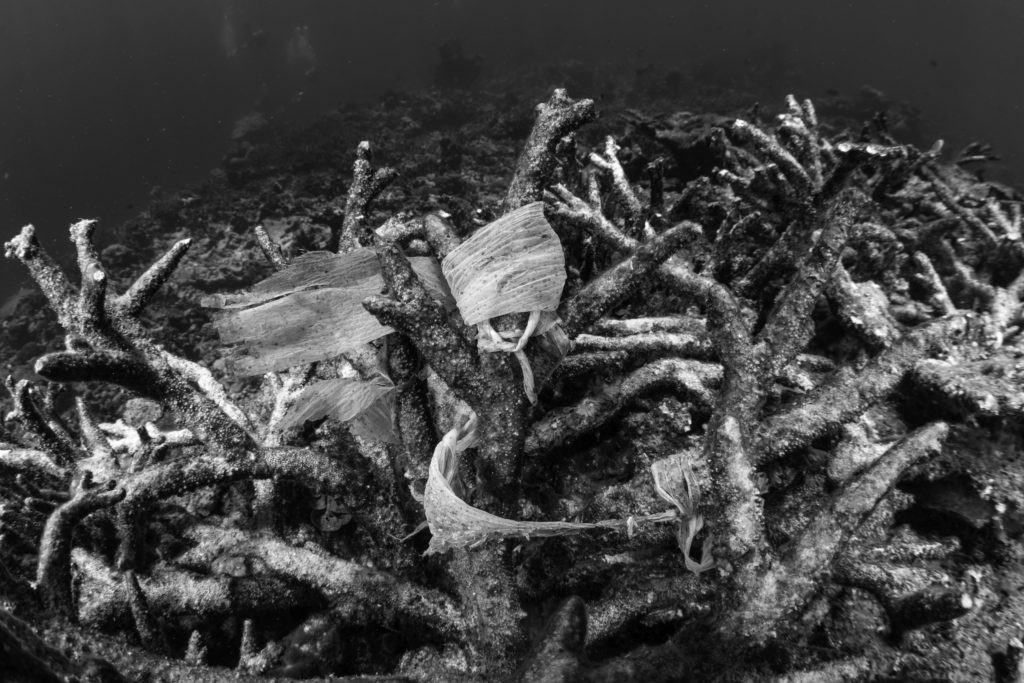
Credit: Uli Kunz/Greenpeace
Plastic caught up in the bleached corals around the Addu Atoll in the Maldives. Algae living in the corals are released as a stress reaction caused by warmer water temperatures, thus turning the coral white. The corals can only revitalise once lower water temperatures return. If this does not happen, they die. In February and March of 2016, water temperatures of 32 degrees celsius were measured over several days around the Addu Atoll, possibly a result of El Nino.
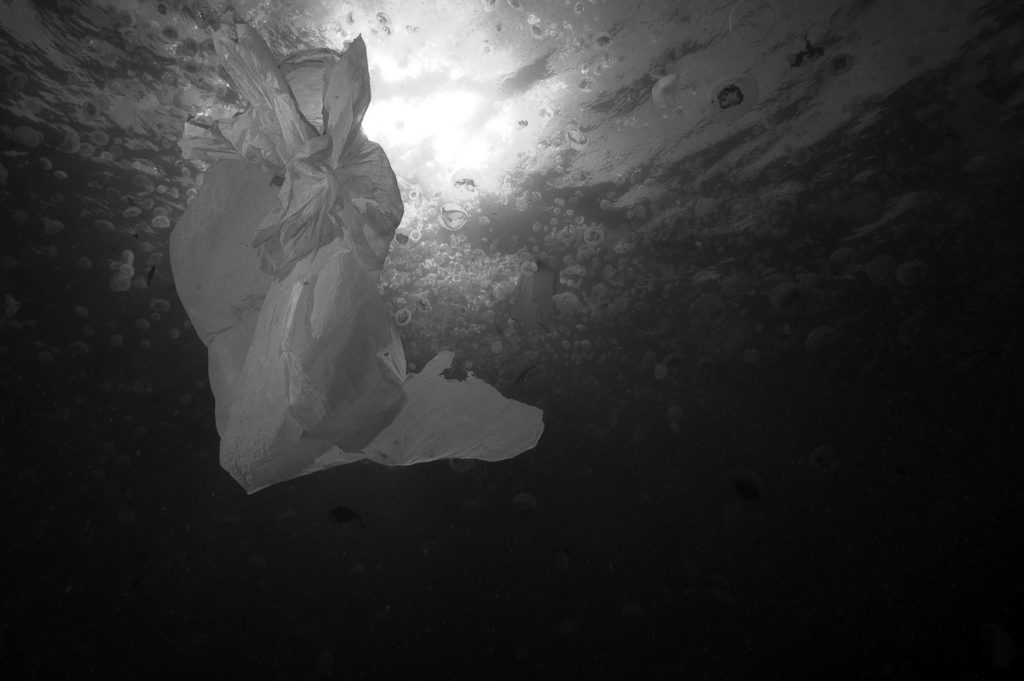
Credit: Marco Care/Greenpeace
A plastic bag floating in the waters of Elphinston Reef, near Marsa Alam, is easily mistaken for a jellyfish. Garbage such as this snares and chokes marine animals which misjudge its shimmering appeal. Elphinston Reef is a spectacular reef and one of the most beautiful sites in the region. Crystal clear waters and unique coral reefs have made the Red Sea one of the world’s prime diving destinations. Yet these reefs are threatened by problems such as overfishing, pollution and uncontrolled coastal development.
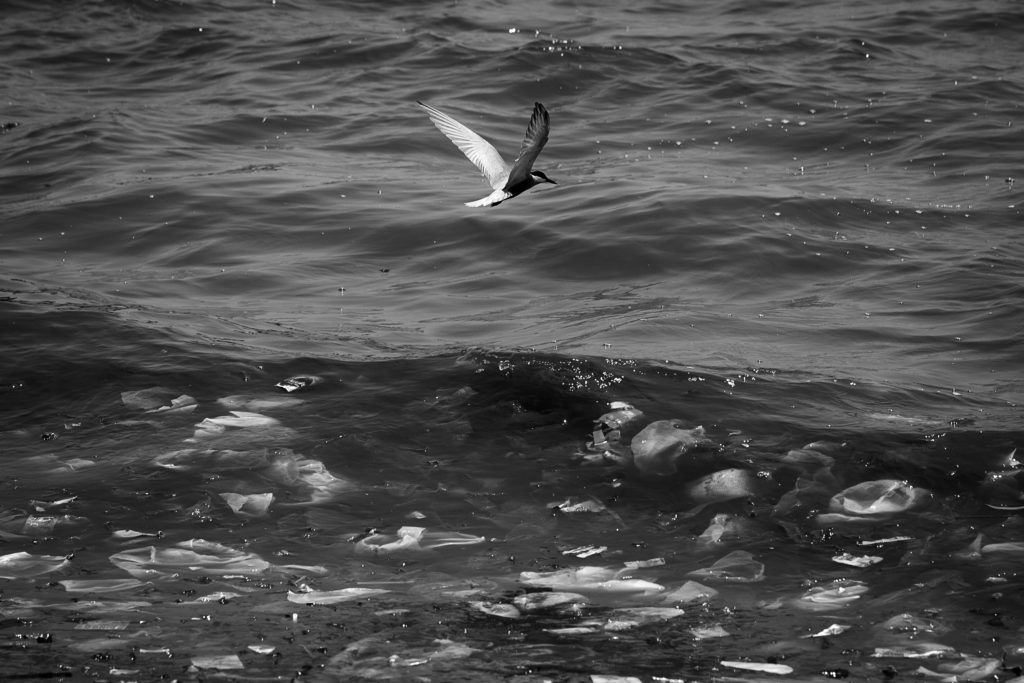
Credit: Daniel Muller/Greenpeace
Bird flies over water that is polluted with plastic waste in Manila.
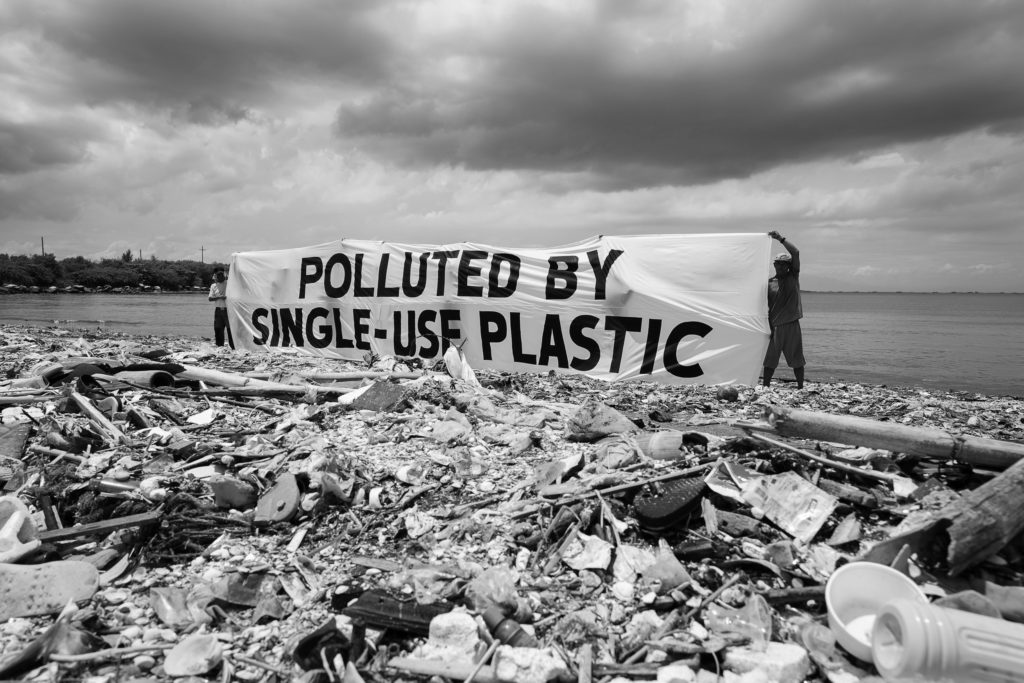
Credit: Daniel Muller/Greenpeace
Greenpeace together with the #breakfreefromplastic coalition conduct a beach cleanup activity and brand audit on Freedom Island, Parañaque City, Metro Manila, Philippines. The activity aims to name the brands most responsible for the plastic pollution happening in our oceans.
Freedom island is an ecotourism area which contains a mangrove forest and swamps providing a habitat for many migratory bird species from different countries such as China, Japan and Siberia.
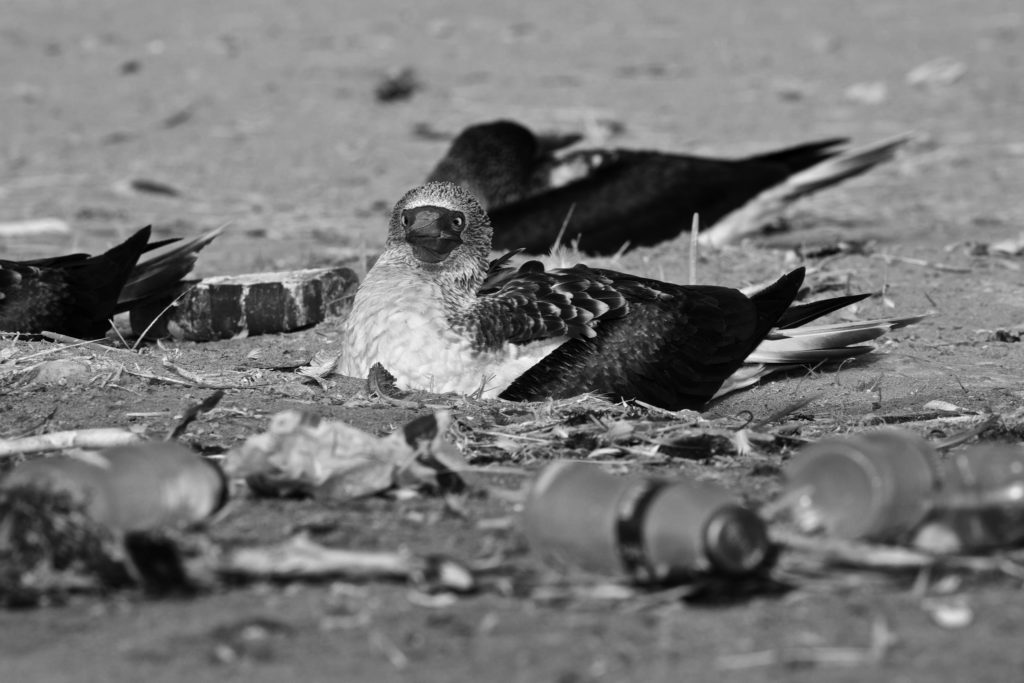
Credit: Robert Marc Lehmann/Greenpeace
Seabirds/Blue Footed Bobbies sitting in between plastic waste on the beach (Sula nebouxii). Isla Lobos de Tierra, Peru.
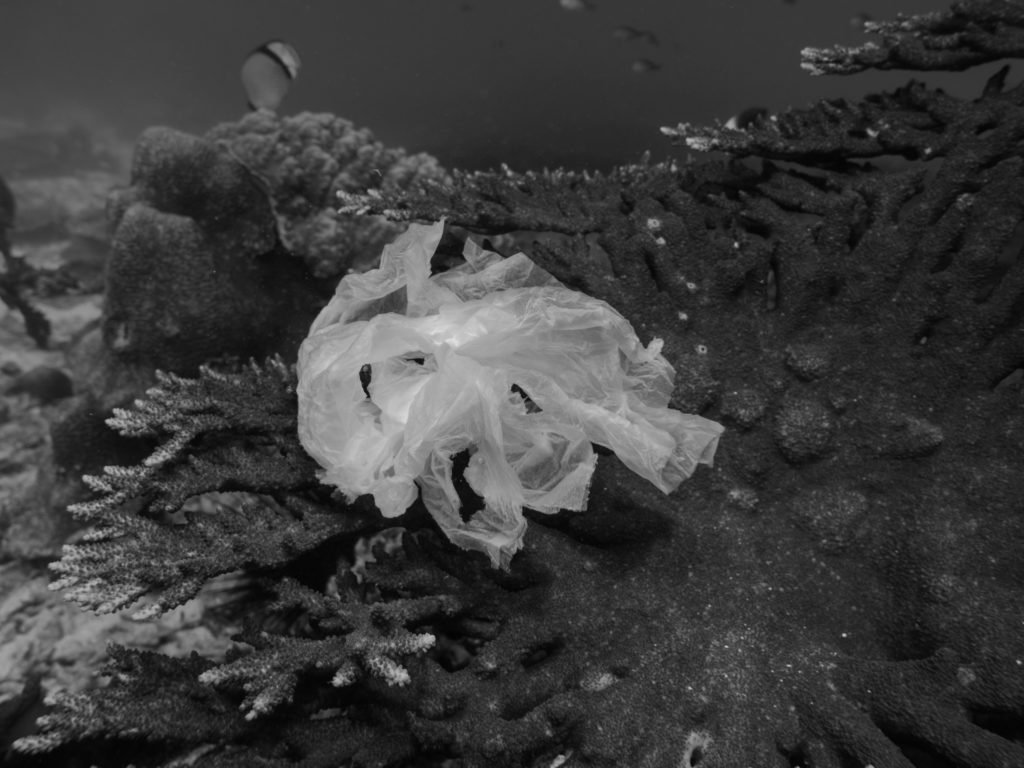
Credit: Wolf Wichmann/Greenpeace
Underwater image of plastic waste in a coral reef on Abd al Kuri, a rocky island in the Indian Ocean.
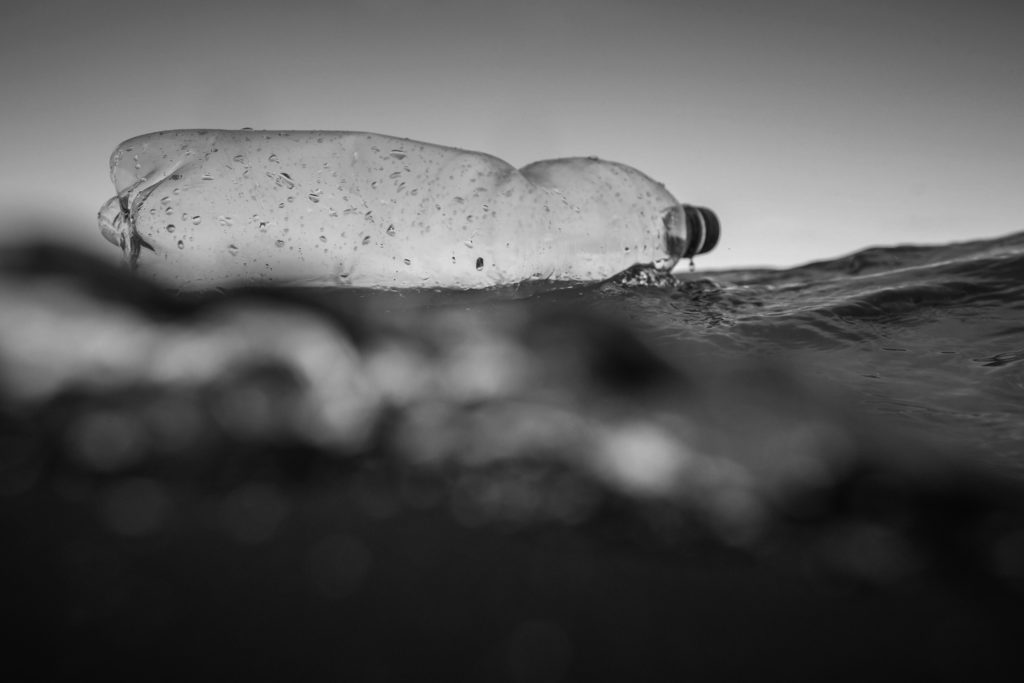
Plastic bottle floating in the sea in the Firth of Forth, Scotland. Up to 12.7 million tonnes of plastic waste enters the oceans every year.
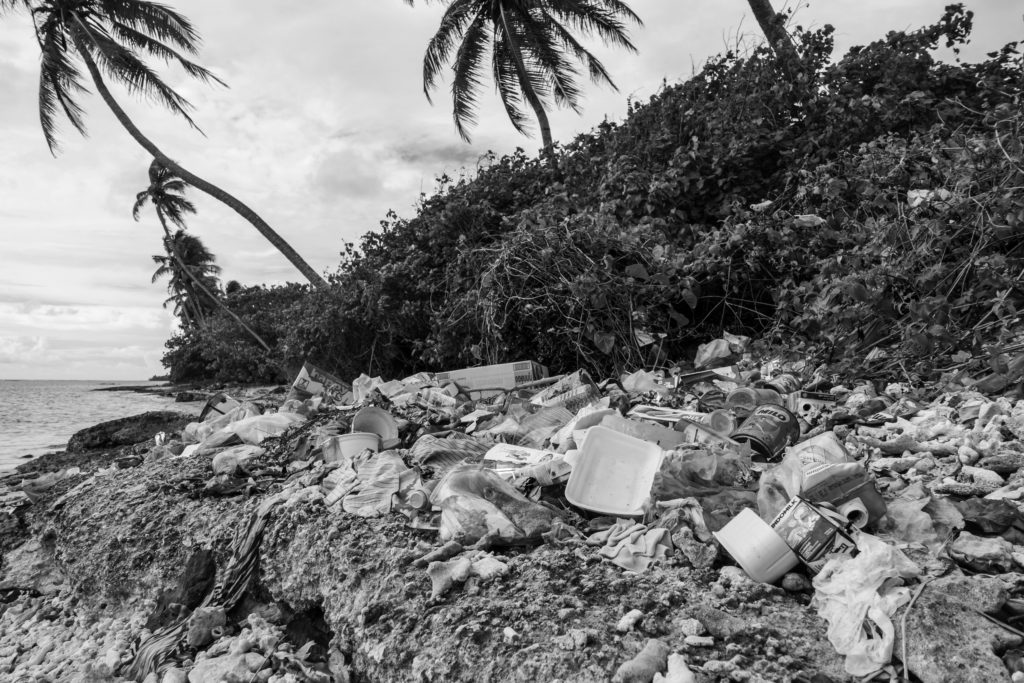
Credit: Uli Kunz/Greenpeace
Piles of garbage on the beach of Gan Island of the Addu-Atoll, Maldives. Plastics, packaging and textiles make up a large part of the rubbish.
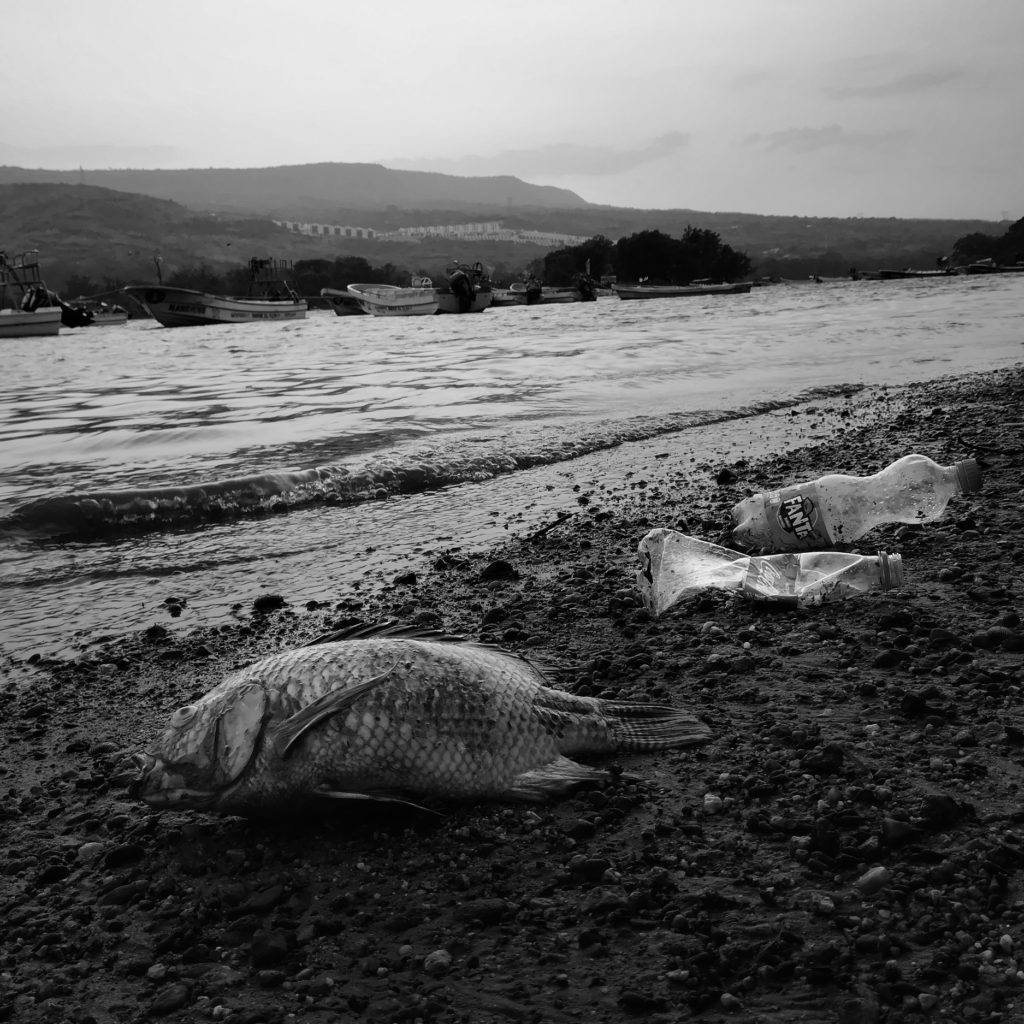
Credit: Greenpeace
In occasion of Earth Day, volunteers in Mexico joined together to collect evidence of single-use plastics belonging to the world’s largest corporations. Greenpeace is asking that they reduce their production of single-use plastics.